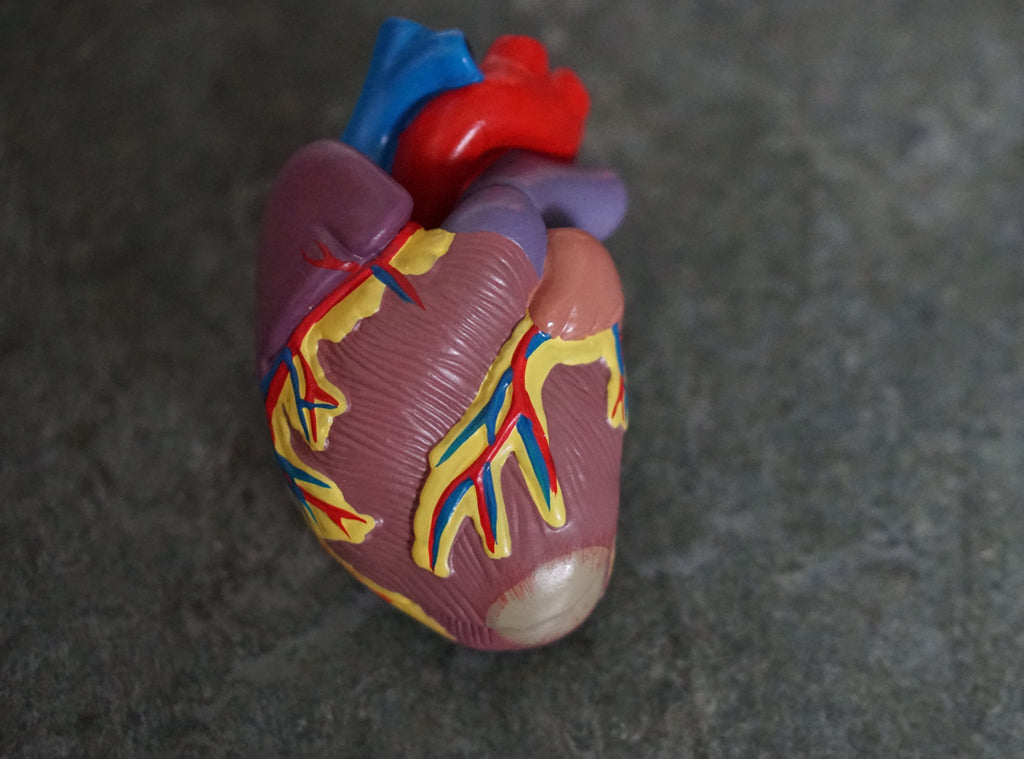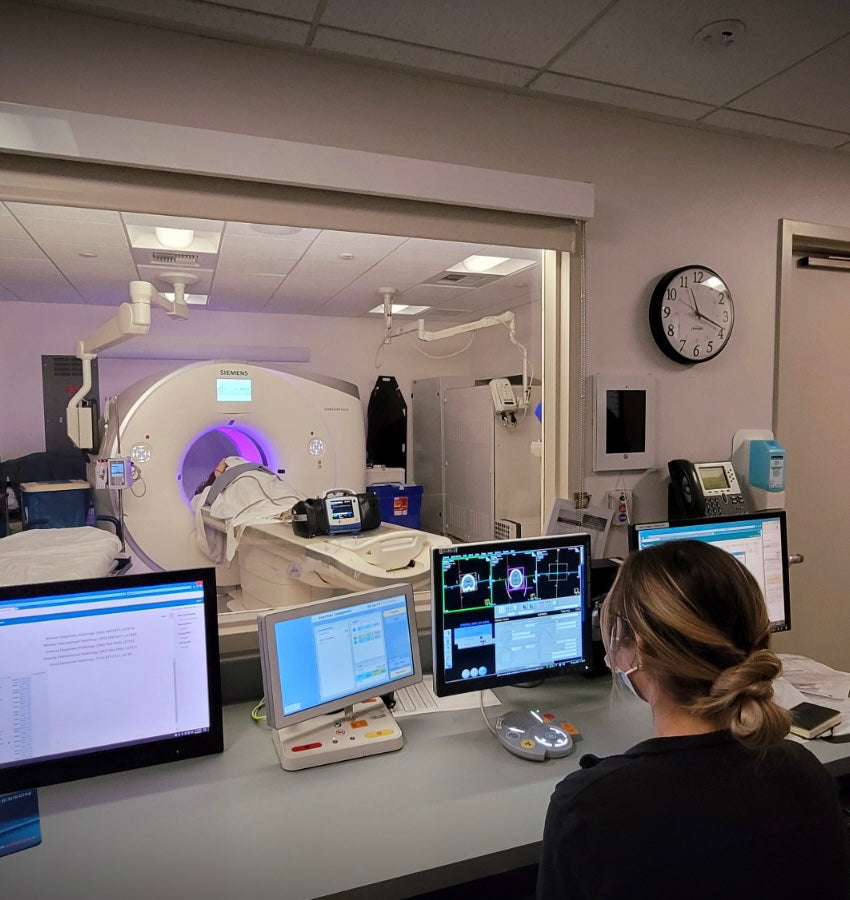What is a Coronary Calcium Scan?
Discover how a coronary calcium scan, a type of CT scan, uses X-rays to measure calcium buildup in the coronary arteries.

The coronary arteries are the blood vessels that supply blood to the heart muscle.
Calcium buildup in the coronary arteries is a sign of atherosclerosis, which is a narrowing of the arteries that can lead to heart disease.
Table of Contents
- What can a coronary calcium scan diagnose?
- Who should get a coronary calcium scan?
- The Agatston scoring system & your heart
- What are the risks of a coronary calcium scan?
- What are the benefits of a coronary calcium scan?
- What happens during a coronary calcium scan?
- What happens after a coronary calcium scan?
- Conclusion
What can a coronary calcium scan diagnose?
A coronary calcium scan cannot diagnose heart disease definitively.
However, coronary calcium scoring can be used to estimate the risk of a person developing heart disease. A higher calcium score indicates a higher risk of heart disease.
Who should get a coronary calcium scan?
The American College of Cardiology (ACC) and the American Heart Association (AHA) recommend that coronary calcium scans be used in people who are at high risk for heart disease.
This includes people who:
- Are between the ages of 40 and 75 years old
- Have a family history of heart disease
- Smoke cigarettes
- Have high blood pressure
- Have high cholesterol
- Are overweight or obese
- Have diabetes
You should consult your primary care physician if you meet any of these criteria. If your focus is on prevention, a high cholesterol reading may be sufficient to qualify.
The Agatston scoring system & your heart
The scoring system for coronary calcium scans is called the Agatston score. The Agatston score is the sum of the individual areas of calcium deposits in the coronary arteries.
A score of 0 means there is no calcium buildup, while a score of 400 or higher indicates a high risk of heart disease.
If you've received your Agatston score, you may enter it into public data to help with public research!
The interpretation of the Agatston score varies by age group. In general, a higher score is associated with a higher risk of heart disease. However, the risk of heart disease also increases with age, so a lower score in an older person may still indicate a significant risk, but less relative to others in that person's age group.
Here is a general guide to the interpretation of coronary calcium scores by age group:
- Age 40 or younger: A score of 0-10 is considered normal. A score of 11-100 is considered borderline. A score of 101 or higher is considered abnormal.
- Age 41-50: A score of 0-30 is considered normal. A score of 31-100 is considered borderline. A score of 101 or higher is considered abnormal.
- Age 51-60: A score of 0-40 is considered normal. A score of 41-100 is considered borderline. A score of 101 or higher is considered abnormal.
- Age 61 or older: A score of 0-50 is considered normal. A score of 51-100 is considered borderline. A score of 101 or higher is considered abnormal.
It is important to note that the Agatston score is just one measure of heart disease risk. Other factors, such as age, gender, family history, and lifestyle also play a role.
If you have a high calcium score, your doctor may recommend further testing, such as a CT angiogram, to assess your risk of heart disease.

Here are some additional things to keep in mind about coronary calcium scans:
- The scan is not a substitute for a stress test or a CT angiogram.
- The scan can be used to screen people who are at high risk for heart disease, but it is not recommended for everyone.
- The scan is safe, but there is a small risk of complications, such as an allergic reaction to the contrast dye used in the scan.
If you are considering a coronary calcium scan, talk to your doctor about the risks and benefits!
What are the risks of a coronary calcium scan?
The most common risk of a coronary calcium scan is its radiation exposure.
The amount of radiation exposure from a coronary calcium scan is generally considered to be low, but it is important to discuss the risks with your doctor before getting the scan.
Other risks of a coronary calcium scan include:
- Allergic reaction to the contrast dye (if used)
- Kidney damage (if contrast dye is used)
- Heart rhythm problems
- Breathing problems
If you've received a concerning measurement in a recent blood test, the risks to receiving the radiation exposure may be outweighed by the benefit of potentially saving your life!
What are the benefits of a coronary calcium scan?
The benefits of a coronary calcium scan can include:
- It can help to identify people who are at high risk for heart disease.
- It can help to determine the severity of coronary artery disease.
- It can help to guide treatment decisions.
- It can help to prevent heart attacks.
Knowing the results of a coronary calcium scan early can mean the difference between prolonged health and an early exit!
What should I do before a coronary calcium scan?
You should tell your doctor about any medications you are taking, including over-the-counter medications. You may also need to stop taking certain medications before the scan.
You should not eat or drink anything for 4 hours before the scan. You should also avoid smoking for 4 hours before the scan!
You may be asked to wear a gown for the scan.
You will also need to remove any jewelry or metal objects from your body.
What happens during a coronary calcium scan?
You will lie on a table that slides into the CT scanner. The scanner will take a series of images of your heart.
These X-rays will be used to create a 3-dimensional image of your coronary arteries to give the radiologists an in-depth look at them.
If you're not a fan of radiology procedures, you're in luck. A coronary calcium scan typically only takes about 10 minutes!
You will be able to lie still during the scan, and you may hear a loud noise from the scanner.
That said, the entire experience ends relatively quickly, and you will, in most cases, be discharged afterwards.
What happens after a coronary calcium scan?
You can usually go home right after the scan.
You may feel some mild discomfort at the site of the injection, if contrast dye was used!
Your doctor will review the results of your scan and discuss them with you. If your calcium score is high, your doctor may recommend additional testing, such as an exercise stress test or even a coronary angiogram.
If a doctor determines that your calcium score is too high given your age range, they may prescribe a range of solutions including, but not limited to:
- Dietary changes
- Exercise and fitness
- Statin medication to lower your LDLs
- PCSK9 inhibitors to lower your LDLs
Conclusion
Coronary calcium scans are a useful tool for assessing the risk of heart disease.
That said, they are not a definitive diagnosis! But, they can help to identify people who are at high risk for heart disease and guide treatment decisions.
If you are at high risk for heart disease, talk to your doctor about whether a coronary calcium scan is right for you. If so, you can have your coronary calcium scan in Los Angeles scheduled with our staff.

